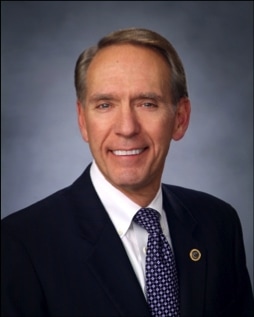
The proper cultivation and refinement of feeling is necessary for the philosophic path, but this must not be confused with mere emotionalism. The former lifts him to higher and higher levels while the latter keeps him pinned down to egoism. The former gives him the right kind of inner experience, but the latter often deceives him. It is right to rule the passions and lower emotions by reasoned thinking, but reason itself must be companioned by the higher and nobler emotions or it will be unbalanced. If we would get him to act rights, as man’s impulses to action come mainly from his feelings, hence it is necessary to re-educate his feelings. There are three kinds of feelings. The lowest is passional. The highest is intuitional. Between them lies the emotional. It is not emotion that philosophy asks us to triumph over but the lower emotions. On the contrary, it asks us to cherish and cultivate the higher ones. It is not feeling that is to be ruled sternly by reason but the blind animal instincts and ignorant human self-seeking. When feeling is purified and disciplined, exalted and ennobled, depersonalized and instructed, it becomes the genuine expression of philosophical living. The heart must also acknowledge the truth of these sacred tenets, for then only can the will apply it in common everyday life. #RandolphHarris 1 of 20

Those who think the philosophic life is one of dark negation and dull privation, of sour life-denial and emotional refrigeration, are much mistaken. Rather it is the happy cultivation of Life’s finest feelings. The hardest thing in the emotional life of the aspirant is to tear himself away from his own past. Yet in his capacity to do this lies his capacity to gain newer and fresher ideals, motives, habits, and powers. Through this effort, he may find new patterns for living and re-educate himself psychologically. However, it is not all his ideas which govern man’s life. Only those are decisive which are breathed and animated by his feelings, only they prompt him to action. Hence, a merely intellectual acceptance of these teachings, although good, does not suffice alone. The aspirant needs to rise above his emotional self, without rising above the capacity to feel, and to govern it by reason, will, and intuition. Sentimentality is a disease. The sooner the aspirant is cured of it, the quicker he will progress. The idea that perfectly harmonious human relations can be established between human beings still dominated by egoism is a delusional one. Even where it seems to have been established, the true situation has been covered by romantic myth. It is possible to attain a stoic impassivity where the man dies to disturbing or disquieting emotions and lives only in his finer ones, where the approbation of others will no longer excite him or the criticism by others hurt him, where the cravings and fears, the passions and griefs of ordinary and everyday human reactions are lacking. However, in their place he will be sensible to the noblest, the most refined feelings. #RandolphHarris 2 of 20

The “heart” is the central abode of human feeling, the symbolic reminder that the “head” or cold, dry intellect is not enough to touch the reality of Spirit. There is one relationship which takes precedence over all others. It is the relationship with the Overself. A wrong relationship with the Overself must inevitably lead to a wrong relationship with men. We are not called upon to renounce our human affections, our Earthly ties, as the ascetics demand, but we are called upon to liberate our love from its egoism. He is indeed free who is no longer liable to be tossed about by emotional storms, whose mind has become so steadied in the impersonal Truth that his personal feelings shape themselves in accord with it. If, and, when we can reconcile our feelings with the hard, sharp truths of philosophy, we shall then find the secret of peace. If binding natural laws were conceived to govern economic behaviour, it would be futile to urge employers to obey the promptings of heir Christian conscience and deal more generously with heir men. Expressing a desire for the growth of trade unions to balance large industrial combinations, Washington Gladden hoped that arbitration would supersede strife as the means of settlement. The principle of competition, the survival of the fittest, is the law of plants and brutes and brutish men, but it is not the highest law of civilized society. The higher principle of goodwill, of mutual help, begins to operate in the social order, and the struggle for existence disappears with the progress of the race. #RandolphHarris 3 of 20

To assume placidly that competition is the law of life and development is the fatal mistake of the social and economic sciences is the most common counterbalance to the competitive principle, in the minds of Christian leaders and the principle of Christian ethics and the dicta of the Christian conscience. The Sermon on the Mount is the science of society. However, as we welcome in the natural process of fruition for our belief in the limitations of competition as a rule of human life, we find a foundation in the natural process of evolution. As the social gospel developed, it became increasingly cordial to municipal socialism or public regulation of basic industries; this could be seen in the writings of many who had the conventional objections to socialism. To the growing solidaristic trend in American thought the social gospel contributed heavily, for its lectures were heard by thousands, its books read by hundreds of thousands, and incalculable numbers joined its organization or attended its earnest conferences. A current of criticism frequently neglected and underrated by historians of American social literature, it supplied several religious bodies with a lasting reform orientation, and paved the way for all socially-minded Protestant movement of a later day. Not the least of its accomplishments was to break ground for the Progressive era. #RandolphHarris 4 of 20

Returning now from the problems of politics and economics to those of culture, we find that the change must be a similar one: from passive consumer culture to active, participant culture. This is not the place to go into details, but most readers will understand the difference between, for example, spectator art (like spectator sports) and active art, expressed in little theater groups, dancing, music, reading, and other forms. The very same question which exists regarding spectator art versus active art applies to the sphere of teaching. Our educational system, whose façade is so impressive according to the number of students who go to college, is unimpressive in quality. Education has deteriorated to a tool for social advancement or, at best, into the use of knowledge for the practical application to the “food gathering” sector of human life. Even our teaching in liberal arts—while not done in the authoritarian style of the French system—is dispensed in an alienated and cerebral form. No wonder that the best minds of our college students are literally “fed up” because they are fed, not stimulated. They are dissatisfied with the intellectual fare they get in most—although fortunately not in all—instances, and in this mood, tend to discard all traditional writings, values, and ideas. It is futile simply to complain about this fact. #RandolphHarris 5 of 20

One must change its conditions, and this change can only if the split between emotional experience and thought is replaced by a new unity of heart and mind. This is not done by the method of reading the hundred great books—which is conventional and unimaginative. It can only be accomplished if the teachers themselves cease being bureaucrats hiding their own lack of aliveness behind their role of bureaucratic dispensers of knowledge; if they become—in a word, by Tolstoy—“the codisciples of their students.” If the student does not become aware of the relevance of problems of philosophy, psychology, sociology, history, and anthropology to his own personal life and the life of his society, only the least gifted ones will pay attention to their courses. The result is that the apparent richness of our educational endeavour becomes an empty front which conceals a deep lack of response to the best cultural achievements of civilized history. The demands of students all over the World for greater participation in the administration of the universities and formulation of the curricula are only the more superficial symptoms of the demand for a different kind of education. If the educational bureaucracy does not understand this message, it will lose the respect which it receives from students and eventually that from the rest of the population. #RandolphHarris 6 of 20

On the other hand, if it becomes “vulnerable,” open and responsive to the interests of the students, it will sense the satisfaction and joy which meaningful activity carries with it as its reward. Marx expressed the nature of the nonbureaucratic influence over people succinctly in this way: “Let us assume man to be man, and his relationship to the World to be a human one. Then love can only be exchanged for love, trust for trust, etcetera. This humanism of education is, of course, not only that of higher education, but it starts with kindergarten and primary school. That this method can be applied even in the alphabetization of poor peasants and slum dwellers has been shown in the very successful methods of alphabetization devised and applied by Professor P. Freire in Brazil and now in Chile. I urge you not to get stuck in the consideration of the merits of the detailed proposals. American democracy must be strengthened and revitalized or it will wither away. It cannot remain static. While Marx already used the term “repression (Verdraengung) of the ordinary natural desires” in the German Ideology, Rosa Luxemburg, one of the most brilliant Marxists in the pre-1914 period, expressed the Marxist theory of the determining effect of historical process on man in straight psychoanalytic terminology. “The unconscious,” she wrote, “comes before the conscious. The logic of the historic process comes before the subjective logic of the human beings who participate in the historic process.” #RandolphHarris 7 of 20

This formulation expression the Marxian thought in full clarity. Man’s conscious, that is, his “subjective process,” is determined by “the logic of the historic process,” which R. Luxemburg equates with the “unconscious.” At this point, the Freudian and the Marxian “unconscious” may seem not to denote more than a common word. Only if we pursue Marx’s ideas on this problem further shall we discover that there is more common ground in their respective theories, even though they are by no means identical. Marx has given a good deal of thought to the role of consciousness in the life of the individual in a passage which precedes the one just quoted where he uses the word “repression.” He speaks about the fact that it is nonsense if one believes “that one could satisfy one passion, separate it from all the others, without satisfying oneself, the whole living individual. If this passion assumes an abstract, separate character, hence if the satisfaction of the individual occurs as the satisfaction of a single passions…the reason is not to be found in consciousness, but in being; not in thinking, but in living; it is to be found in the empirical development and self-expression of the individual, which, in turn, depends on the conditions of the World in which he lives. (die wiederum von der Weltverhaltnissen abhangt.)” #RandolphHarris 8 of 20

In this passage, Marx establishes the polarity between thinking and living which is parallel to that between consciousness and being. The social constellation of which he spoke before molds, so he says here, the being of the individual and thus, indirectly, his thinking. (The passage also is interesting because Marx develops here a most significant idea on a problem of psychopathology. If man satisfies only one aliened passion, he, the total man, remains unsatisfied; he is, as we would say today, neurotic, precisely because he has become the slave of the one alienated passion and has lost the experience of himself as a total and alive person.) Marx, like Dr. Freud, believed that man’s consciousness is mostly “false consciousness.” Man believes that his thoughts are authentic and the product of his thinking activity whole they are determined by the objective forces which work behind his back; in Dr. Freud’s theory these objective forces represent physiological and biological needs, in Marx’s theory they represent the social and economic historical forces which determine the being and thus indirectly the consciousness of the individual. Let us think of an example: The industrial method of production as it has developed in the last decades is based on the existence of large, centralized enterprises which are controlled by a managerial elite, and in which hundreds of thousands of workers and clerks work together, smoothly and without friction. #RandolphHarris 9 of 20

This bureaucratic industrial system shapes the character of the bureaucrats as well as that of the workers. It also shapes their thoughts. The bureaucrat is conservative and adverse to taking risks. His main desire is to advance, and he can best do so by avoiding risky decisions and by allowing himself to be led by an interest in the proper functioning of the organization as his guiding principle. The workers and clerks, on their side, tend to feel satisfied in being part of the Organization provided their material and psychological rewards are sufficient to justify this. Their own trade union organizations resemble in many ways that of their industry: large-scale organizations, bureaucratic and well-paid leadership, little active participation of the individual member. The development of large-scale centralized government and armed services, both of which follow the same principles which guide the industrial corporations. It is an ironical fact that those conservatives who are opposed to big government (or at least pretend to be) are usually not opposed to bib business or to big military establishments. This type of social organization leads to the formation of elites, the business, government, and military elites and, to a degree, to the trade union elites. This business, government, and military elites are closely interwoven in personnel, in attitudes, and in ways of thinking. #RandolphHarris 10 of 20

Despite the political and social differences between the “capitalist” countries and the “communist” Soviet Union, the way of feeling and thinking among their respective elites is similar, precisely because the basic mode of production is similar. The power elites are the product of a specific way of production and social organization and, hence, that their existence confirms the basic Marxian assumption, rather than contradicts it. Military and political determinism are equally valid assumptions. I believe these elites and their role can be best understood precisely from the standpoint of the Marxian model. The consciousness of the members of the elites is a product of their social existence. They consider their way of organization and the values that are implied in it as being in “the best interests of man,” they have a picture of human nature which makes this assumption plausible, they are hostile to any idea or system which questions or endangers their own system; if they feel that their organizations are threatened by it, they are against disarmament, they are suspicious and hostile of a system in which their class has been replaced by a different and new class of managers. Consciously, they honestly believe that they are motivated by patriotic concern for their country, duty, moral, and political principles, and so on. #RandolphHarris 11 of 20

The elites on both sides are equally caught in thought and ideas which follow from the nature of their conscious thoughts. Precisely because they are sincere, and because they are not aware of the real motivations behind their thoughts, it is difficult for them to change their minds. These people are not driven by an overwhelming greed for power, money, or prestige. To be sure, such motives exist too; but the people in whom this is the all-consuming motive are the exception rather than the rule. Personally the members of all the elites would be just as willing to make sacrifices and to renounce certain advantages as anybody else. The motivating factor is that their social function forms their consciousness, and hence their conviction that they are right, that their aims are justified and, in fact, beyond doubt. This explains also another and very puzzling phenomenon. We see that the elites of two great blocs are on a collision course and that there are great difficulties in coming to an arrangement which will secure peace. There is no doubt that nuclear war would man the death of most members of the elite, of most their families, and the destruction of most of their organizations. If they were driven mainly by lust for money and power, how could one understand that this greed would not yield to the fear of death, except in the case of exceptionally neurotic individuals? The point lies precisely in the difficulty to change their viewpoint. Because to them, theirs is the rational, decent, honourable way of thinking—and if the nuclear holocaust will destroy everybody—it cannot be helped since there is no other course of action besides that of “reason,” “decency,” and “honour.” #RandolphHarris 12 of 20

An academic course has definite boundaries: even if I learn everything within them, I cannot go beyond them, and when I have completed the course I feel that I “know.” When I am studying on my own, there are no such boundaries. I range wherever my interests take me, into the disapproved as well as the approved, instead of being confined to texts and other reading selected for me by someone else. In this way, I gain a perspective that makes me a more reasonable person, more in accord with reality. I become aware of many divergent opinions and my mind is more flexible as I find my own continuing way through them. The continuing happens because this is not a course, with the end arbitrarily decided by someone else. There is no end. My awareness of this changes my behaviour. Relatedness (otherwise known as “a broad liberal background”) comes about through one field moving me into another, not through certain things being put together and related for me. Within myself, this relatedness is vaster and more sweeping than anything that can be put in books or taught to me by someone else. The space within me is prodigious. A person can look into himself and discover that—and discover that this space shrinks when I have taken in too much without time to digest it. Then I become like the Navajos who say that “there is no more room in the head.” #RandolphHarris 13 of 20

The process of free association, of frank and unreserved self-expression, is the starting point and continuous basis of all analytic work-self-analysis as well as professional analysis—but it is not at all easy of achievement. It might be thought that this process is easier when working alone, for then there is no one who may appear to misunderstand, criticize, intrude, or retaliate; besides, it is not so humiliating to express to oneself those things of which one may be ashamed. To some extent this is true, although it is also true that an outsider, by the very fact of his listening, provides stimulation and encouragement. However, there is no doubt whatever that whether one is working alone or with an analyst the greatest obstacles to free expression are always within oneself. One is so anxious to ignore certain factors, and to maintain one’s image of oneself, that alone or not alone one can hope only to approximate the ideal of free associations. If he skips or obliterates any thought or feeling that arises, in view of these difficulties, the person who is working alone should remind himself from time to time that he acts against his true self-interest. Also, he should remember that the responsibility is entirely his own: there is only himself to guess a missing link or inquire about a gap left open. #RandolphHarris 14 of 20

This conscientiousness is particularly important regarding the expression of feelings. Here are two precepts that should be remembered. One is that the person should try to express what he really feels and not what he is supposed to feels and not what he is supposed to feel according to tradition or his own standards. He should at least be aware that there may be a wide and significant chasm between genuine feelings and feelings artificially adopted, and should sometimes ask himself—not while associating, but afterward—what he really feels about the matter. The other rule is that he should give as free range to his feelings as he possibly can. This, too, is more easily said than done. It may appear ridiculous to feel deeply hurt at a seemingly trivial offense. It may be bewildering and distasteful to mistrust or hate somebody he is close to. He may be willing to admit a ripple of irritation, but find it frightening to let himself feel the rage that is actually there. He must remember, however, that as far outside consequences are concerned no situation is less dangerous than analysis for a true expression of feelings. In analysis only the inner consequences matters, and this is to recognize the full intensity of a feeling. This is important because in psychological matters, too, we cannot hang anybody whom we have not first caught. #RandolphHarris 15 of 20

Of course, no one can forcibly bring forth feelings that are repressed. All anyone can do is not to check those that are within reach. With all the good will in the World, Clare, at the beginning of her analysis, could not have felt or expressed more resentment toward Peter than she did. However, as her analysis progressed, she gradually became more capable of appreciating the existing intensity of her feelings. From one point of view the whole development she went through could be described as a growing freedom to feel what she really felt. More desirable, from the standpoint of growth toward maturity, is the quest for independent security. This entails learning a new skill to gratify the need or to solve the problem by oneself. We must recognize that no human being can face life without help and affection from other people. It is important to emphasize independent security as a goal, to guide the efforts of parents and teachers as they stive to influence a child’s growth in wholesome ways. There is a distinction between immature dependent security, which is shown by persons who retain infantile patterns of dependency upon parents, or parent substitutes and authority figures, throughout life. Mature dependent security is shown in relationships of mutual love, where each person relies upon the other to provide for those needs that can never be gratified in solitude or without help, such as compassion and satisfying companionship. #RandolphHarris 16 of 20

These patterns of independent security, mature and immature dependent security, and the false security based on defense mechanisms are manifested in the major realms of life. These realms include vocational life, one’s avocations or leisure pursuits, one’s relationships with other people inside and outside the family, and one’s philosophy of life. Thus, a person might display independent security in connection with work, mature dependent security in relationships with members of the family, immature dependent security in the use of leisure time, and insecurity regarding religion or philosophy of life. Independent security means the state of consciousness which accompanies a wiliness to accept the consequences of one’s own decisions and actions. [It] can be attained in only one way—by the acquisition of skill through learning. Whenever an individual is presented with a situation for which he is inadequately prepared…he must make one of two choices—he must either retreat or attack…The individual must, if he is to attack, emerge from the state of dependent security and accept the state of insecurity. This attack will, of course, result in learning…The individual learns that satisfaction results from overcoming the apprehension and anxiety experienced when insecure, and that he may thus reach a state of independent security through learning. #RandolphHarris 17 of 20

The more people rely on machinery, electronic devices, and other apparatus, the more dependent they become on that very machinery. Reliance on media, “the extensions of man,” robs people of the very powers that are embodies in the gadgets. Periodic excursions to the wilderness, with training in survival skills, are a wholesome corrective to the skill-depleting way of life that is the lot of most people who live in cities. If he seeks the truth, the disciple must have no room for false sentimentality. Consequently, he will not apply the phrase “a broke heart” to himself at any time, for he knows that what it really means is a broken ego, a served attachment to some external thing which must be given up if the way is to be cleared for the coming of Grace. It is only when he is unwilling or unable to do this for himself that destiny steps in, taking him at his word in his search for truth and reality, and breaks the attachments for him. If he accepts the emotional suffering which follows and does not reject it, he is able to pass into a region of greater freedom, and of progress to a higher level. His heart is not broken arbitrarily or capriciously, but only there where it most needs to be broken—where passion desire, and attachment bind him the most strongly to illusion and error. Only after long experience and severe reflection will a man awaken to the truth that the beauty that attracts him and the ecstasy which he seeks can be found free of defects and transiency only in the Soul within. #RandolphHarris 18 of 20

Fire safety is an important part of the workplace and home, to protect against the destruction and death caused by fires. “We had a rookie school, you’re supposed to have all your hours certified by the state, but I was already out in the field. Our training chief waited until he had enough rookies to form a class. Then we would go to rookie school for eight hours, from eight to five, and after that, if you were on a shift, you went back to your station and worked the rest of your shift. We all got a lot of overtime, and that didn’t bother us. As part of the class, we were driving through downtown in a rescue vehicle with sliding panels like a bread truck. One of the guys whistled at a girl, and the chief bawled us out, my first lesson in fire department discipline. We were also given the job of testing all the hoses in the whole fire department, so you can imagine the water fights we got into. The department’s hiring procedures were good as far as the written and physical tests were concerned, but the oral interview wasn’t that much. There are people in our department who shouldn’t be there, shouldn’t have gotten past the oral interview. One of the toughest fires I ever had was one of the first. I was on the job for maybe a month, and I was still looking for my initiation to come. Then less than two blocks away from our station there was a gas leak under a house, and it exploded. #RandolphHarris 19 of 20

“A man was sitting on the commode in his bathroom, and he lit a match to light the gas heater there. The explosion blew out three walls of the house, and part of the roof collapsed. The guy got burns on his rear end, legs and feet, but the mother and baby in another room just had some plasterboard fall on them. We heard the bang, and we went. My job initially was to do the pumping, but we were on a replacement engine, and it had a different mechanism for charging the line. I didn’t know where it was. My captain was standing out there with no water, and he had to run back and turn the knob. So then we went ahead and got the fire out, except for a fire under the house. Fireman had cut a hole in the floor, eight by twenty inches, and told me to go under there. I told him, ‘You’re crazy. I’m not going under there. This place is ready to fall.’ I thought he was kidding with me. When I found out he wasn’t, I ended up underneath the house, lying on my back in water and mud, and trying to spray water on the fire. When I came out from under there, of course, I was all messed up. I got ridiculed by some of the men and got a bad rep with the captain for not going straight in. Anyhow, it was really something else.” Please help save lives and property by making a donation to the Sacramento Fire Department. Also, teach your children to love America, love God and Jesus Christ, to respect their elders and law and order. With firmness in the right as God gives us to see the right, let us strive on to finish the work we are in, to do all which may achieve and cherish a just and lasting peace among ourselves and with all nations. I pledge allegiance to the flag of the United States of America and to the Republic for which it stands, one nation, under God, with liberty and justice for all. #RandolphHarris 20 of 20

Lincoln, CA | from the low $600s
Now Selling!

Your new home at Cresleigh Havenwood offers exceptional luxury living.
Open-concept design, soaking tubs & more
Owned solar & Smart Home systems included
Some of the lowest Mello-Roos in the area
Elevate your living experience and see why Havenwood is the perfect place to call home. https://havenwood.cresleigh.com/





